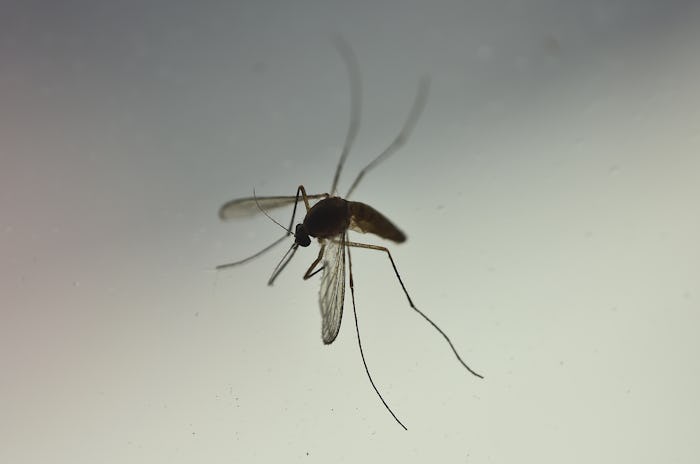Life

Could Genetically Modified Mosquitoes Help Protect Americans From Zika? It's Possible
In the face of a rapidly growing Zika virus epidemic that has so far affected 39 countries in the Caribbean and Latin America, public health officials are imploring people, especially pregnant women, to be especially wary of a common summertime annoyance: mosquito bites. That's because one common mosquito species, the Aedes aegypti, carries and spreads the virus, which has especially harrowing effects on unborn babies. Infants born to mothers who have contracted Zika often have a host of birth defects, including microcephaly, which causes small heads and brain damage. As fears about the vector infiltrating the United States intensify, one British biotech company has offered a possible solution — and it has the Food and Drug Administration, as well as politicians, wondering whether genetically modified mosquitoes can help protect Americans from Zika.
"Controlling the mosquitoes is our first line of defense, and it's an area we’ve neglected over the past decades," Hadyn Parry, the CEO of Oxitec, said before the House of Representatives' Committee on Science, Space, and Technology in Washington on Wednesday. "Current insecticidal products are just not efficient to control this mosquito in the urban environment."
His solution? Unleash genetically modified male mosquitoes into the wild to mate with female Aedes aegypti to produce offspring that will die, and therefore greatly reduce the population and the spread of the virus.
Parry and his team are requesting emergency approval from the FDA to use the genetically modified mosquitoes in the United States, specifically in the Florida Keys on a trial basis. Although the field trials in Brazil, the Cayman Islands, Panama, and Malaysia have reportedly resulted in a reduction in mosquito populations by as much as 99 percent there, the FDA is evaluating public comments before making a decision.
While there have so far been 544 reported Zika cases in the United States so far, all of them have been travel-related, not contracted through mosquito bites within the United States. But the Aedes aegypti has been identified in a number of the continental United States. So it's understandable — and expected — that officials are looking for solutions both at home and abroad. "I don’t think time is on our side with Zika," Parry said at the hearing Wednesday.
There's no cure for Zika and its full effects are not yet clear. Because it experienced a recent outbreak of dengue, another disease transmitted by the Aedes aegypti, the Florida Keys wants to give the genetically modified mosquitoes a trial, USA Today reported.
Some people are feeling more cautious about the introduction of GMOs into the wild. More than 160,000 people signed a change.org position opposing the Oxitec trial in the Keys, but that was before the onslaught of the Zika virus.
“The public fears genetic engineering. Nearly all politicians don’t understand it,” Arthur Caplan, the founding director of the Division of Medical Ethics at NYU School of Medicine, told The Atlantic. “I don’t think the issue is economic. It is ignorance, distrust, fear of the unknown, fear of prior efforts to use biology to combat pests which went sour.”
The genetically modified mosquitoes are just one facet of the push to control Zika. Congress is currently struggling to approve funding to fight the Zika virus, and U.S. officials are determining how they will protect Olympic athletes from Zika at this summer's games in Rio, Brazil, the country that is widely considered to the the "epicenter of the rapidly evolving outbreak," according to The Washington Post.
If the measure wins approval, its success is by no means guaranteed. But we now know that genetically modified organisms are perfectly safe, contrary to deep-seated, widely held opinions to the contrary, and we also know that Zika is incredibly dangerous, hyper-contagious, and poised to begin spreading in the United States as the weather warms and mosquitoes proliferate. So this could be a viable and worthwhile approach.